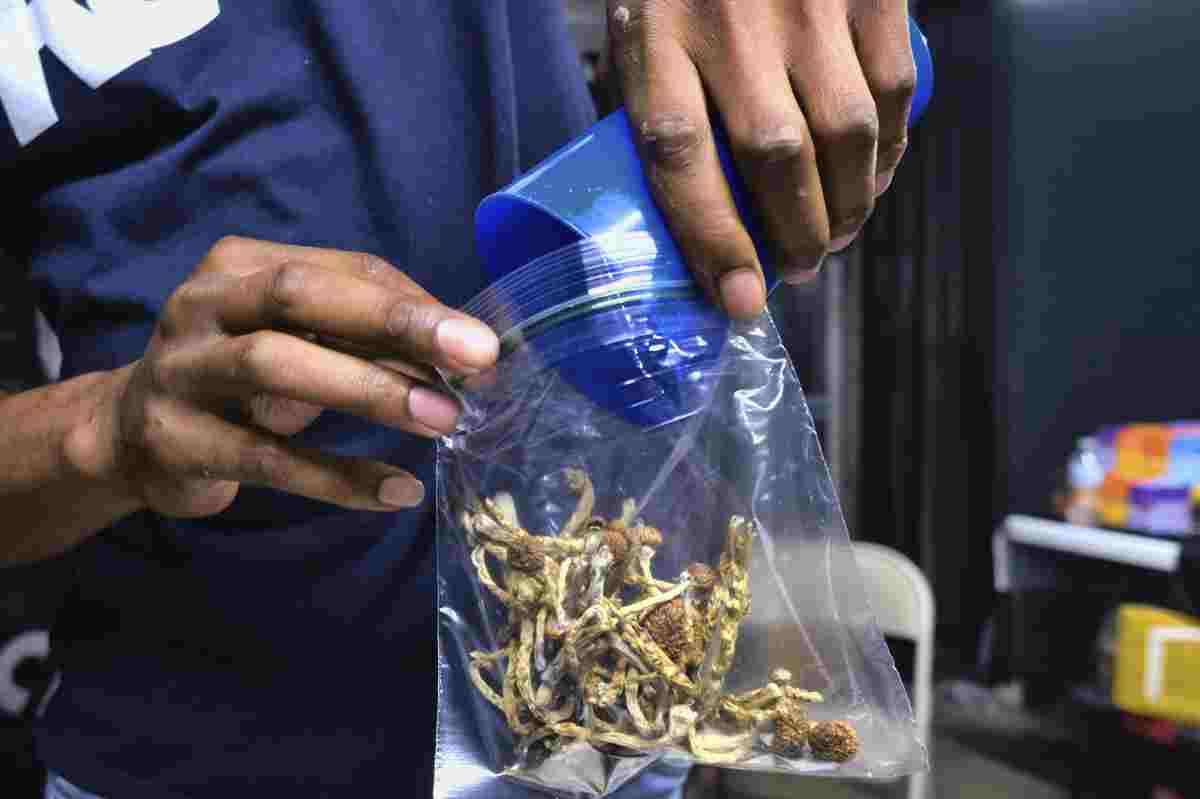If you’re of a certain inclination, you may have hunted for skinny little mushrooms on public lawns around your community.
You put them in soup or dry them and make tea. Soon you feel a warm, sometimes queasy feeling in your tummy, and the next thing you know you’re listening to colours and seeing sounds.
Magic mushrooms — or “shrooms” as they’re often called — are like a poor man’s LSD. The active ingredient is psilocybin, and at high enough doses, it can cause you to hallucinate.
But a growing number of people have been micro-dosing shrooms to deal with depression, and the drug’s potential for treating mental health conditions has caught the attention of researchers around the world.
Jennifer (not her real name) is a St. John’s woman who turned to magic mushrooms six months ago to help deal with bipolar disease. It’s a neurochemical imbalance that can cause extreme shifts in mood, from anxiety and paranoia to deep depression.
Jennifer says she researched the chemical online, and now takes about 0.3 grams every four days.
“The first day I take it, it makes me a little bit sleepy,” she told The Telegram this week. “The day after I take it, I’m on top of the world. I’m so happy. Everything is brighter. There’s no depression, there’s no anxiety. Everything feels good.”
The third day, she said, is a buffer — time for it to get out of her system so she doesn’t develop a tolerance.
Then she starts over.
Jennifer was diagnosed with bipolar two years ago. She says the antipsychotic medications and benzodiazepines (“benzos”) were not working for her. In fact, they came with their own side-effects.
“You have no feelings. There’s no feeling good, there’s no feeling bad. You almost don’t feel like yourself,” she said. “You’re high, and it’s not a good high either. It’s been the worst time of my life being on these medications, to be honest.”
Some jurisdictions have loosened restrictions on psilocybin, even though it’s still illegal.
In May 2019, the U.S. Food and Drug Administration approved clinical trials for the use of psilocybin for the treatment of depression.
Last month, a handful of terminally ill cancer patients in this country lobbied federal Health Minister Paddy Hajdu to be able to use it legally on compassionate grounds.
“Magic mushrooms have been taken for centuries, probably millennia, recreationally,” says John Weber, a pharmacologist and neuroscientist at Memorial University in St. John’s.
They mimic the effect of serotonin, which binds to neuroreceptors in the brain and facilitates mood and thought activity.
Many of those neuroreceptors are located in a part of the brain that regulates sleeping and waking cycles. That’s why, at high doses, chemicals like LSD and psilocybin can cause hallucinations.
“As you get to higher doses of psilocybin you get hallucinations, because it’s very much like a dream-like state,” Weber told The Telegram this week.
But other parts of the brain are also affected, including the amygdala, which is associated with emotions such as fear, and the central medial prefrontal cortex, which deals with decision-making and self-perception.
Psilocybin can act like a “reset” when there’s disruption in the chemical balance, he said.
Weber agreed it’s wise for people like Jennifer to stagger their intake.
“It’s good that she’s spacing it out, because you can get tolerance. It isn’t addictive, but you can get tolerance,” he said.
As for risks, Weber said there are few.
He said there’s a stigma because of the association with the 1960s, when hippies were taking far too high doses of hallucinogenic drugs and some experienced “bad trips.”
Like cannabis, he said, it’s pretty well impossible to overdose on psilocybin — unless you lose self-control and injure yourself or someone else.
The only downside is the lack of research on its long-term effects, he said, and that’s changing by the day as more and more studies are conducted.
While psilocybin should not be considered dangerous, Weber said, other substances should.
“I think by far the most dangerous drug is alcohol,” he said. “I don’t think there’s anything that comes close to that.”
_____
— Peter Jackson, Local Journalism Initiative Reporter
THE TELEGRAM via Canadian Press

